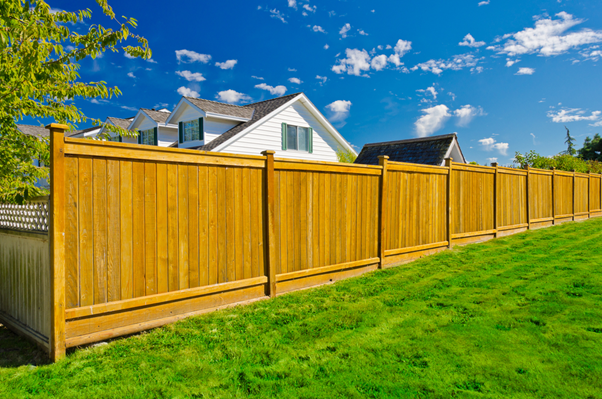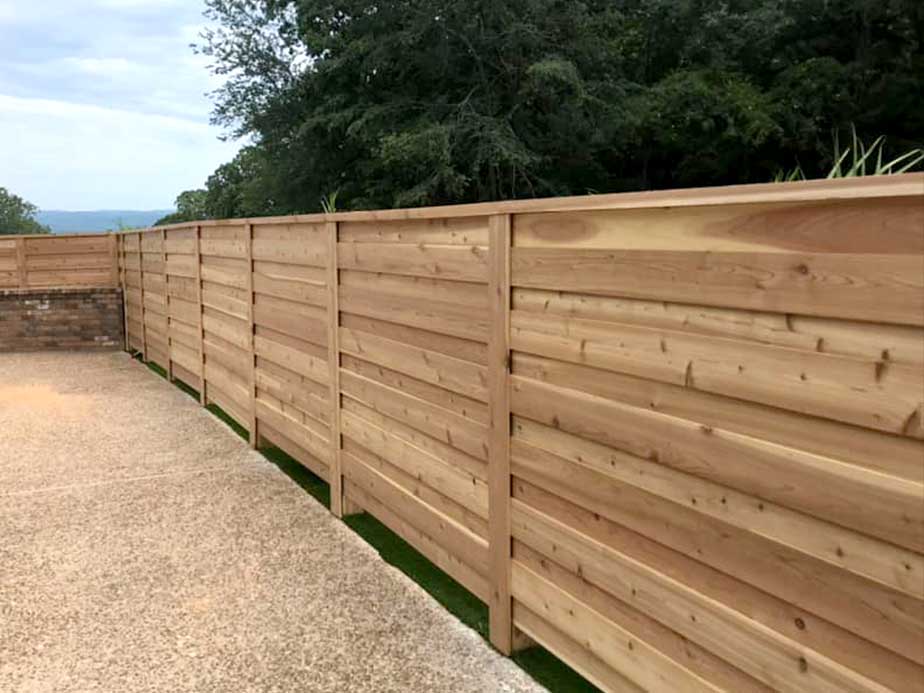All Categories
Featured

When mounting a fencing, choosing the appropriate product is essential to stabilizing functionality, aesthetic appeals, and budget plan. Wood, plastic, and aluminum are amongst one of the most commonly chosen fencing products, each with its downsides and toughness. This guide discovers the pros and disadvantages of these options to help you make a notified choice.

Timber Secure Fencing. Pros:. All-natural Appeal: Wood's timeless appeal can improve any kind of property with its cozy and traditional appearance. Customizable: You can paint, tarnish, or carve timber to fit your style preferences. Budget-friendly: Timber secure fencing is originally much more budget-friendly compared to some other materials. Eco Friendly: As a sustainable resource, wood is eco-friendly and usually considered eco-friendly. Cons:. Maintenance-Intensive: Regular sealing, painting, or discoloration is needed to stop damages from weather and insects. Prone to Decay: Without correct treatment, timber can rot, warp, or crack gradually. Much shorter Lifespan: Generally, timber fencings last 10-15 years, depending upon the sort of wood and maintenance. Timber is a great option for those that value looks and agree to spend in regular upkeep to preserve its appearance and durability.
Vinyl Fencing. Pros:. Low Upkeep: Plastic needs very little care-- simply occasional cleaning with soap and water. Climate Resistant: It does not warp, rot, or yield to insect damages, making it highly long lasting in various climates. Durability: Plastic fences can last 20-30 years with little to no repair work. Design Range: Available in a vast array of appearances, colors, and styles, including wood-like appearances. Cons:. Higher Initial Price: Plastic fences are a lot more pricey in advance contrasted to wood. Susceptability to Cold: In extremely winter, plastic can come to be weak and vulnerable to fracturing. Limited Fixing Options: Matching replacement panels can be testing if damage takes place. Plastic fence is ideal for house owners looking for a long-lasting, low-maintenance option that uses modern flexibility.

Aluminum Fencing. Pros:. Rust-Proof: Aluminum stands up to deterioration, making it an outstanding option for humid or damp atmospheres. Durable: Regardless of being lightweight, light weight aluminum is solid and can endure harsh weather condition conditions. Reduced Upkeep: It needs minimal upkeep, usually just occasional cleansing. Long Life-span: Aluminum fencings can last decades without considerable wear and tear. Sophisticated Layout: Commonly used for ornamental functions, aluminum secure fencing adds a sleek, advanced seek to homes. Disadvantages:. High Preliminary Investment: Light weight aluminum fences are amongst the more expensive options on the marketplace. Much less Personal privacy: The open designs typical with aluminum fencing don't offer much personal privacy. Vulnerable to Damage: While resilient, light weight aluminum can dent if hit with enough pressure. Light weight aluminum is an exceptional option for homeowners focusing on appearances and sturdiness without requiring much maintenance.
Making Your Decision. When making a decision between light weight aluminum, plastic, or timber secure fencing, consider your concerns:
Wood suits those that value a natural appearance and don't mind putting in upkeep initiative. Plastic is the most effective choice for those seeking a low-maintenance, weather-resistant solution. Light weight aluminum uses sleek style and durable sturdiness but may do not have personal privacy. By thoroughly evaluating these materials' functions, you can pick a fence that enhances your residential or commercial property while satisfying your aesthetic and functional needs.
Latest Posts
Learn About Outstanding Auto Repair Solutions offered by Montclare Auto Repair – Keep Your Car Running Smoothly
Published May 30, 25
1 min read
Check Out Oil Changes & More: Comprehensive Auto Care Solutions from Montclare Auto Repair
Published May 27, 25
1 min read
Discover Special Auto Repair Offers in Chicago at Montclare Auto Repair
Published May 26, 25
1 min read
More
Latest Posts
Learn About Outstanding Auto Repair Solutions offered by Montclare Auto Repair – Keep Your Car Running Smoothly
Published May 30, 25
1 min read
Check Out Oil Changes & More: Comprehensive Auto Care Solutions from Montclare Auto Repair
Published May 27, 25
1 min read
Discover Special Auto Repair Offers in Chicago at Montclare Auto Repair
Published May 26, 25
1 min read